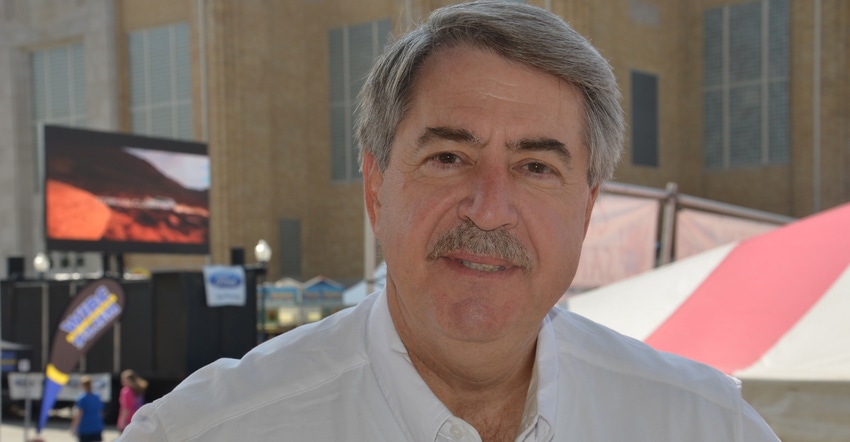
USDA Undersecretary for Trade Ted McKinney compared trade deals to America’s pastime, baseball, when discussing a recent trip to Guatemala. Speaking from that Central American country, he used this vernacular to sum up what he considered a very successful trip.
“We may not always hit a home run in terms of the size of ag trade deals,” he said, as reporters at a press conference wanted to talk about the North American Free Trade Agreement and other issues instead of what McKinney believed his team accomplished in Central America. “But we’re racking up lots of singles, doubles and triples.
“You can win in the end by banging out lots of those. And you never know when one might turn into a home run. We’re very happy with what our team accomplished,” he said.
The trip to Central America is just one of several McKinney has made since being confirmed by Congress. The native Hoosier was director of the Indiana State Department of Agriculture before heading to Washington, D.C., to head up a new position in USDA.
“I believe the new position, no matter who is in that role, is an excellent idea,” McKinney says. “USDA did a good job before, but people who headed up trade missions and other trade efforts also had other responsibilities. I can focus strictly on trade and expanding markets for U.S. ag products.”
McKinney believes the designation as an undersecretary for USDA helped his trade team gain audiences with cabinet ministers and the president of Guatemala.
Keys for trade
“Trade must be a two-way street for it to work effectively,” McKinney says. “It can’t be an ‘I win, you lose’ proposition. Trade must be a win-win for everyone. We believe that’s happening with our Central American trade partners. We came home encouraged, and they seemed excited, as well.”
Thirty-four ag business people accompanied McKinney on the trip. In addition, four directors of state departments of agriculture and three deputy directors from other states were on the trade mission. In many cases, contracts were written on the spot, McKinney notes. In other situations, while there is more work to do before actual deals are made, he’s confident that contacts made in Central America will result in more contracts in the future.
McKinney visited a local operation that produces and ships fruit to the U.S. “They export raspberries, blackberries and blueberries, but they only send them into the U.S. during off-season for those crops in our country,” he says. “They were very emphatic about that point. It was another example of how trade must be a two-way street.”
McKinney says if he can help U.S. farmers and consumers understand one additional point, it’s that countries such as the ones he visited in Central America have great respect for U.S. products and business practices.
“We are known for producing quality, safe food, and usually having it available in ample quantities,” he says. “These potential buyers know that food production in the U.S. is well-regulated by government agencies, and that is a plus in their minds. They know they will get safe, quality products when they buy from us.”
About the Author(s)
You May Also Like




